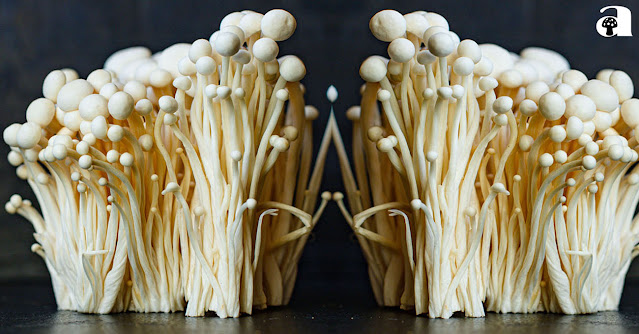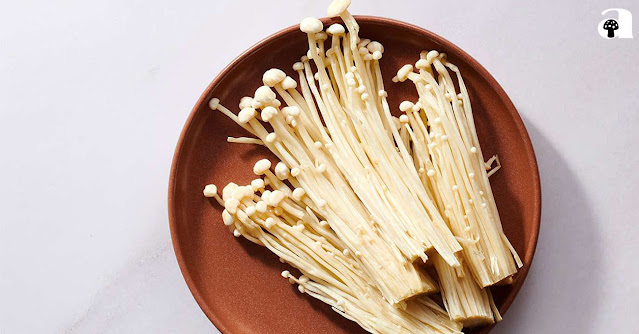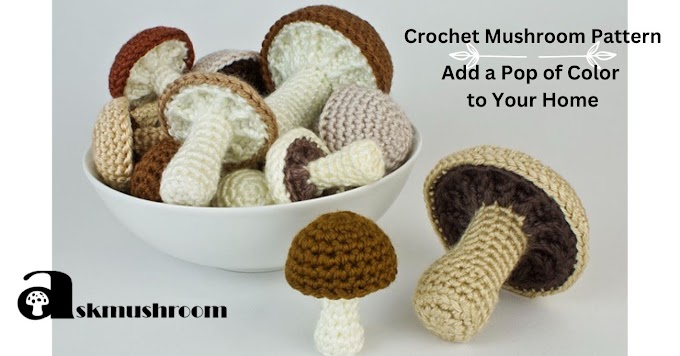Enoki mushrooms (Flammulina velutipes) are an edible variety native to Asia that have become widely cultivated and enjoyed across the world. Characterized by long stems with tiny white caps, enoki's unique appearance distinguishes it from other varieties of mushroom.
Mushroom Enoki, more commonly known by its Japanese name of Enokitake, has long been used as part of Japanese cuisine. This delicous mushroom boasts mild yet delicate flavour and a pleasant crunchiness; perfect for raw or cooked consumption and widely used throughout Asian cooking as well as salads, sandwiches, soups, and pasta sauces.
Nutritional Value of Enoki Mushroom
Enoki mushrooms are low in calories but high in nutrients, making them an excellent addition to any diet. According to the United States Department of Agriculture (USDA), a 100-gram serving of enoki mushrooms provides the following nutrients:
• Calories: 37
• Protein: 3.6 grams
• Fat: 0.3 grams
• Carbohydrates: 6.8 grams
• Fiber: 2.8 grams
• Vitamin B1 (thiamin): 9% of the daily value (DV)
• Vitamin B2 (riboflavin): 13% of the DV
• Vitamin B3 (niacin): 12% of the DV
• Vitamin B5 (pantothenic acid): 11% of the DV
• Vitamin B6 (pyridoxine): 6% of the DV
• Vitamin D: 2% of the DV
• Folate: 5% of the DV
• Iron: 5% of the DV
• Potassium: 7% of the DV
• Zinc: 6% of the DV
Enoki mushrooms offer many health advantages, including:
* Support of immunity: Thanks to its abundance of antioxidants and beta-glucans, Enoki mushrooms may help support an effective immune system as well as decrease inflammation.
* Digestive Health: Enoki mushrooms contain dietary fiber that can aid in improving digestive health and helping avoid constipation.
* Cancer prevention: Some studies indicate that certain compounds found in enoki mushrooms could possess anti-cancer properties and could help protect against certain forms of cancer cells from growing and spreading.
* Cardiovascular health: Enoki mushrooms contain little fat, sodium and potassium - all essential elements to reducing high blood pressure and cardiovascular disease risk.
How to Cook with Enoki Mushroom
Enoki mushrooms boast mild, sweet and crunchy textures, making them a versatile ingredient in numerous types of cuisines. Here are some ways you can cook with Enoki mushrooms:
* Stir Fry them With Vegetables: Enoki mushrooms pair perfectly with many vegetables, including bell peppers, snow peas and carrots. Simply stir fry these together with some garlic and ginger for a healthy side dish that takes only minutes to make!
* Use them as garnish: Enoki mushrooms can make an elegant finishing touch for salads, sushi rolls, pizzas and other dishes.
* Grill or Broil them: For a delicious appetizer or side dish, brush enoki mushrooms with olive oil before grilling or broiling until lightly browned and crisp.
Enoki mushrooms make an exquisite and nutritious addition to any diet, offering mild flavor and crunchy texture for use in many different cuisines. From soups, stir-fries, to garnishing meals - Enoki mushrooms add both flavor and nutrition.
Enoki Mushroom Frequently Asked Questions (FAQs): Enoki
What Are Enoki Mushrooms (Flammulina Velutipes)?
Enoki mushrooms, also known by their scientific name of Flammulina velutipes, are an edible mushroom species native to Asia but now widely cultivated and consumed worldwide. With long thin stems and white caps they stand out among edible varieties as a delicious edible mushroom option.
What Do Enoki Mushrooms Taste Like?
Enoki mushrooms feature a mild, slightly sweet taste with an irresistibly crunchy texture similar to bean sprouts or noodles - similar in fact!
What are the nutritional benefits of Enoki mushrooms?
Enoki mushrooms offer many healthful nutrients at low calories. This includes dietary fiber, vitamins B1, B2, B3, B5, B6 and D as well as folate, iron potassium and zinc. Furthermore, Enoki mushrooms contain antioxidants and beta glucans which may support immune health while improving digestive function and decreasing inflammation.
Are Enoki mushrooms safe to eat raw?
Raw Enoki mushrooms are generally considered safe, though for your own safety it is wise to fully cook them first before consuming. Raw mushrooms contain harmful bacteria which could potentially make you sick; to reduce any risks to health it is suggested they reach an internal temperature of 160degF (71degC) when cooking them in order to ensure maximum safety.
How should Enoki mushrooms be stored?
Enoki mushrooms should be stored in the refrigerator in their original packaging or paper bags to preserve their quality and ensure optimal storage conditions for up to one week of freshness. Plastic bags could trap moisture that leads to spoilage of Enoki mushrooms; always check expiry dates on packages to be safe!
What are some ways of cooking Enoki mushrooms?
Enoki mushrooms can be prepared in many different ways, from stir-frying with vegetables and adding them to soups and stews to grilling or broiling them before being used as garnish on salads or sushi rolls.
Can Enoki mushrooms be frozen?
Yes, Enoki mushrooms can be stored for up to six months in the freezer if cleaned and any excess moisture removed before placing in a freezer-safe container or plastic bag.
Are Enoki mushrooms suitable for vegans and vegetarians?
Yes, Enoki mushrooms are appropriate as plant-based food options for both groups.
Are Enoki mushrooms beneficial to weight loss?
Enoki mushrooms offer low calories and high fiber counts, making them an excellent addition to a weight loss diet. Their dense cell walls help you stay feeling full while providing essential vitamins, minerals, and antioxidants.
Are Enoki mushrooms associated with any health risks?
Enoki mushrooms are generally safe to consume; however, some individuals may have allergies or intolerances to them. Furthermore, Enoki mushrooms have been linked with outbreaks of foodborne illness in the past so it's wise to cook them thoroughly to minimize any potential hazards.
Can Enoki mushrooms be used medicinally?
Enoki mushrooms have long been used in traditional Chinese medicine as part of an effective healing regimen, as their beta-glucans and polysaccharides may possess immune-enhancing and tumor fighting qualities, respectively. Further research is required to fully comprehend their health benefits.
What dishes utilize Enoki mushrooms?
Enoki mushrooms are an incredibly versatile ingredient and can be found in many popular recipes such as soups, stews, stir fries, salads and sushi rolls. Japanese and Korean cuisine frequently uses them, particularly popularly hot pot (nabe) or bibimbap dishes.
Where can I purchase Enoki mushrooms?
Enoki mushrooms can be found at most grocery stores and Asian markets. They often come packaged in clusters inside clear plastic bags.
How can I prepare Enoki mushrooms for cooking?
To prepare Enoki mushrooms for cooking, simply cut off and separate their stems into individual clusters before rinsing under cold water to eliminate any dirt or debris that may have collected on them.
Can Enoki mushrooms be substituted with other varieties in recipes?
Enoki mushrooms offer unique flavor and texture characteristics that might not fit all applications, yet they can often be successfully substituted in soups and stir-fries as an ingredient.
Can Enoki mushrooms be grown at home?
Absolutely. Enoki mushrooms can be successfully grown at home with the use of a mushroom growing kit, available online and from specialty gardening stores and typically including everything needed - spores, substrate, instructions - for successful mushroom production at home.
Are Enoki Mushrooms Eco-Friendly?
Enoki mushrooms can provide a sustainable food source as they require minimal resources for cultivation and can even be grown indoors in controlled environments. Their short growth cycle makes harvesting quick and efficient.
How can I tell if Enoki mushrooms have gone bad?
Faded Enoki mushrooms often display slimy or sticky textures, an unpleasant sour smell, and visible mold or discoloration - telltale signs they have been compromised and should be discarded immediately.












.jpg)





